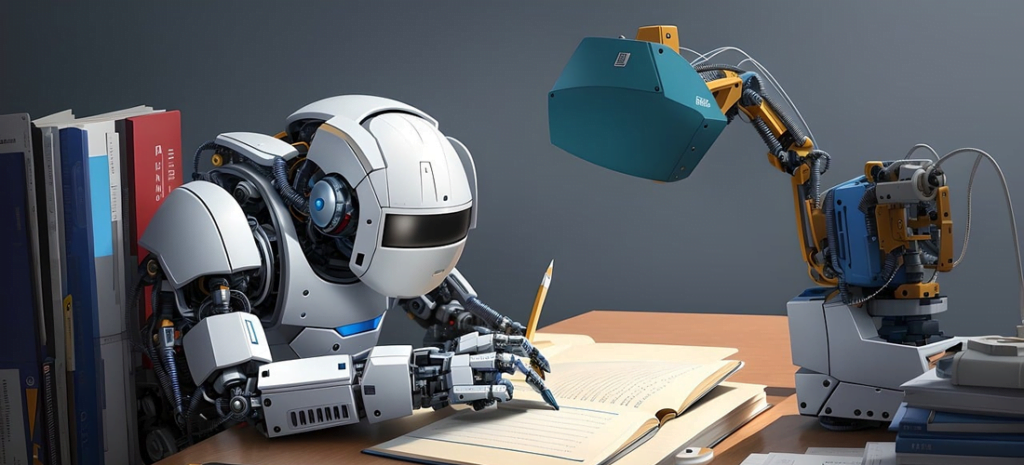The world has become increasingly digital and it has become harder to ignore technology’s impact on our learning and memory. There are apps available in all levels of education supposed to enhance our learning capacity, as well as software touted to revolutionize the way we store and retrieve information. But is all this true? Is technology truly improving our memory, or is it just giving us the illusion of knowledge?
Let’s take a closer look at the relationship between technology and memory.
First, let’s define what we mean by “technology”. In this context, technology refers to any tools or devices that aid in our learning process. This could include anything from traditional educational tools such as textbooks and calculators to more modern ones like computers and smartphones.
Now, when it comes to memory, there are two types that we need to consider: short-term memory and long-term memory. Short-term memory is the ability to hold and process information for a short period of time, while long-term memory is the storage of information over an extended period.
So, how does technology impact these different types of memory?
Technology and Memory: Positive Impact on Learning
Enhanced Access to Information
- Internet Research and Online Resources: The advent of the Internet has transformed the way we gather and process information. It’s like having a global library at our fingertips, accessible at any time, from anywhere. For instance, when we’re working on a project or writing a paper, we no longer have to make a trip to the library and sift through stacks of books.
With a quick online search, we can access a plethora of resources and information to deepen our understanding of virtually any topic. This not only makes learning more efficient but also enhances our memory. By engaging with diverse digital resources, we’re exposed to different perspectives and formats of information, which aids in the encoding and retrieval of information, thus boosting our memory capabilities.
Interactive Learning Tools
- Gamification and Educational Games: Imagine having to memorize a long list of historical facts or mathematical formulas. Sounds a bit tedious, doesn’t it? Now, picture learning the same information, but with a fun, interactive game. A little more interesting, right? These types of games make learning enjoyable and engaging, making it easier for our brains to remember the information.
This is because our minds tend to retain information better when we’re having fun. So, technology, through gamification, not only enhances our learning experience but also significantly boosts our memory retention. - Simulations and Virtual Reality: Simulations and virtual reality represent an exciting and innovative intersection of technology and education. They create a compelling learning environment, fostering not only understanding but also memory retention. This technology allows us to immerse ourselves fully in a simulated environment, turning abstract concepts into tangible experiences.
For instance, visualizing the structure of a DNA molecule in a biology class or stepping into the historic streets of Rome in a history lesson. These vivid experiences etched in our minds are likely to stick longer than words on a page. In essence, simulations and virtual reality enrich the learning process, making it engaging and memorable.
Personalized Learning
- Adaptive Learning Platforms: Imagine a learning tool that adjusts to your individual learning style and pace, sounds fantastic, right? That’s essentially what adaptive learning platforms do. They leverage technology to assess a learner’s strengths, weaknesses, and pace, and then customize the learning experience accordingly.
This personalized approach enhances memory recall as the learner is interacting with content tailor-made for them. It’s not a one-size-fits-all method anymore, and our brains love that! The more unique and personalized the learning, the more memorable it becomes. So, in essence, technology is not only making learning more accessible but also more memorable. Result? A more efficient learning process. - AI-driven Tutoring and Feedback: AI-driven tutoring and feedback systems are a personalized tutor available 24/7, ready to guide and assist you at your own pace. They adapt to each individual’s learning style, identifying areas of weakness and providing personalized exercises for improvement. Feedback is instant, allowing learners not only to correct their mistakes promptly but also to reinforce the correct knowledge in their memory. Therefore, these technological marvels offer a more engaging and effective learning experience, significantly enhancing our capacity to remember and apply the learned concepts.
Multimodal Learning
- Digital Textbooks and Multimedia: Digital textbooks and multimedia are reshaping the way you learn and remember information. Thanks to technology, textbooks have transformed from static pages into dynamic learning platforms. Now, you can interact with the content, watch explanatory videos, and even test your knowledge with built-in quizzes.
This multimedia approach caters to different learning styles, making it easier for you to grasp and remember complex concepts. Plus, digital textbooks are easily updated, ensuring you’re always learning from the most current information. So, technology isn’t just changing how you learn—it’s improving your ability to remember what you’ve learned.
Collaborative Learning Opportunities
- Online Collaboration Tools: Online collaboration tools significantly enhance the impact of technology on learning and memory. Imagine this – you’re in a virtual classroom with a diverse group of learners from all corners of the globe, exchanging ideas and learning together in real time. Thanks to platforms like Google Docs, Trello, or Slack, you can collaborate on projects, share resources, and engage in stimulating discussions.
This not only enriches your learning experience but also serves as a powerful aid to your memory. As you actively participate and contribute to these collaborative processes, you embed new knowledge deeper into your memory.
Assistance for Special Needs
- Assistive Technologies: Assistive Technologies like text-to-speech or speech-to-text tools, for example, can greatly help those with dyslexia or other learning difficulties. These tech tools can read out text aloud, helping you understand and remember the material better. You don’t have to struggle with reading; instead, you can absorb the information at your own pace and in your own style.
Efficient Organization and Note-taking
- Digital Note-taking and Organizational Apps: Instead of scrambling to jot down every spoken word on paper, you could use a note-taking app to quickly and efficiently record information. These apps, like Evernote or OneNote, allow you to organize your notes in a way that makes sense to you. You can even tag specific topics for easy reference later. This not only aids in learning by providing a structured way to review material but enhances memory recall.
By seeing the information digitally organized, your brain can make connections and associations, helping you remember the material better. And the best part? You have the freedom to access your notes anytime, anywhere, thanks to the cloud-based storage technology.
Immediate Access to Feedback
- Online Assessments and Grading: These tools provide instant feedback, enabling you to understand where you stand in real-time. No more waiting for days or weeks to know how you did on that test! Immediate feedback allows you to quickly identify and rectify your misunderstandings, improving your memory retention. Online assessments also offer the advantage of repetition. You can take practice tests multiple times, reinforcing the material in your mind. This frequent interaction with the content, enabled by technology, can enhance your learning and solidify your memory.
Technology and Memory: Negative Impact on Learning and Memory
Distraction and Multitasking
- Social Media and Smartphone Use: When you’re constantly being bombarded by notifications, your attention is frequently diverted, making it difficult to concentrate and absorb new material. Moreover, the very design of social media encourages a quick, shallow reading style. As a result, you may find it harder to retain and remember details over the long term.
Instead of engaging deeply with the content and encoding it into your memory, you might simply skim through, forgetting it almost as quickly as you read it. To top it all off, excessive screen time can disrupt your sleep patterns, and we all know the essential role that restful sleep plays in memory consolidation. - Attention Span and Cognitive Load: When you’re constantly bombarded with texts, emails, or social media notifications, it becomes increasingly difficult to maintain focus on a single task. This overstimulation can lead to a shorter attention span, causing you to skim through information rather than deeply engaging with it.
Similarly, the cognitive load theory suggests that our minds can only process a limited amount of information at a given time. By constantly multitasking on various digital platforms, you’re pushing your brain to its maximum limit, paving the way for cognitive overload. This overload can hamper memory consolidation, making it harder for you to retain information in the long run.
Reduced Face-to-Face Interaction
- Social Skills and Communication: When you’re constantly plugged into devices, it can limit face-to-face interaction, which is essential for developing robust interpersonal skills. You may find yourself more comfortable sending a text or an email than having a conversation. Overreliance on technology can also lead to misunderstandings since many nuances of communication, like tone of voice and body language, are lost in digital interactions.
These experiences are key to fostering empathy and understanding, which are fundamental elements of effective communication. So, while technology has the power to enhance memory and learning, it’s important to balance its use with offline, interpersonal interactions. - Emotional Intelligence: With the rise of technology, human interaction is increasingly getting replaced by screen-based communication. You might find yourself more often responding to an email or a text rather than having a face-to-face conversation. This lack of personal interaction and reliance on digital communication can hinder our ability to understand, interpret, and respond to the emotions of others.
We might miss out on subtle cues like body language, tone of voice, and facial expressions that are crucial in understanding the emotions behind the words. Over time, this could potentially lead to a decline in our emotional intelligence, making it harder to empathize and connect with others on an emotional level.
Overreliance on Technology
- Loss of Critical Thinking and Problem-Solving Skills: As you become increasingly dependent on technology for information and answers, you might notice an impact on your critical thinking and problem-solving skills. Let’s consider this scenario: instead of grappling with a challenging problem, you may find yourself reaching for your smartphone to Google the solution.
This instant gratification can reduce the need for deep, analytical thinking, which in turn, could lead to a decline in your problem-solving abilities. Over time, this can impact your memory as your brain is not being exercised to its full ability. It’s like a muscle: if you don’t use it, you lose it. So, while technology offers quick solutions, it’s essential to balance its use with traditional problem-solving methods to keep your brain sharp and memory intact. - Dependency on Search Engines: Dependency on search engines is one way technology can negatively impact learning and memory. Why? Well, let’s say you’re constantly turning to Google for answers. It’s convenient, sure, but it can discourage independent problem-solving and critical thinking. You may become reliant on search engines, which can lead to a decrease in memory retention. Instead of remembering and learning information, you’re just finding and forgetting. This constant ‘Googling’ might make it harder for you to recall information without the help of a search engine, weakening your memory over time.
Physical and Mental Health Concerns
- Sedentary Lifestyle: While technology has its perks, it may inadvertently promote a sedentary lifestyle, negatively impacting both learning and memory. When you’re spending hours in front of screens—whether for work, study, or leisure—it can reduce the amount of physical activity you get. A lack of physical activity can lead to an unhealthy body, but it doesn’t stop there. It also impacts your brain health.
Regular exercise is known to stimulate brain chemicals that foster the growth of nerve cells, enhancing your memory and learning capabilities. Without that, your cognitive functions may not be at their peak performance. So, remember to balance your use of technology with regular bouts of physical activity for optimal learning and recall. - Digital Fatigue and Eye Strain: Digital fatigue and eye strain are unfortunate side effects of excessive screen time, which is often a by-product of technology-based learning. When you spend prolonged periods staring at digital screens, your eyes can become dry and irritated, leading to discomfort and blurred vision, a condition referred to as digital eye strain. This can make focusing on your screen difficult, impacting your ability to absorb and retain information.
Constantly straining your eyes and brain in this manner can lead to digital fatigue, leaving you feeling exhausted and reducing your cognitive capabilities. As a result, your learning efficiency takes a hit and your memory retention may suffer. It’s important to balance the use of technology for learning with regular screen breaks and eye exercises to mitigate these effects.
Information Overload
- Too Much Information: Although technology grants us the ability to access information promptly, the inundation of data can hinder your ability to focus on, process, and remember information effectively. When your mind is bombarded with excessive information, it may struggle to filter out irrelevant details, making it challenging for your brain to construct and retrieve memory accurately. This could lead to cognitive overload, diminishing your learning efficiency. Remember, it’s important to manage your information intake to ensure that technology enhances, not hinders, your learning and memory.
Plagiarism and Academic Dishonesty
- Easy Access to Pre-written Content: Access to pre-written content is as simple as a few clicks thanks to the proliferation of technology. However, this ease can be a double-edged sword, particularly when it comes to academic honesty and the integrity of learning. Thoughtlessly copying and pasting content can lead to plagiarism, a serious breach of academic ethics. Rather than encouraging the development of unique thought and critical analysis skills, it promotes a culture of shortcut-taking.
Reliance on pre-existing content can hinder memory development and retention. Instead of actively processing and understanding new information, students may fall into the habit of merely regurgitating others’ ideas, which doesn’t contribute to effective learning or long-term memory formation. In essence, while technology brings numerous benefits to education, it’s crucial to be aware of and address its potential downsides.
Balancing Technology and Traditional Learning
Balancing technology with traditional learning methods can be a game changer for your memory. Technology, when used thoughtfully, can enhance your learning experience in a number of ways. It offers interactive learning tools, instant access to vast resources, and platforms for collaborative learning that can simplify complex concepts and make learning more engaging.
But let’s not forget about the value of traditional learning methods. Reading physical books, handwriting notes, and in-person discussions help in building a strong conceptual understanding and improving recall. Striking a balance is key. Try blending both approaches. For instance, you could read a chapter from a physical book and then use an online platform for an interactive quiz on that chapter. This way, you get the best of both worlds—enhancing your learning and boosting your memory.
Conclusion
You’ve seen how technology can profoundly influence our learning capabilities and memory retention. Whether it’s the use of diverse educational apps, online learning platforms, or digital flashcards, technology offers a myriad of tools to cater to different learning styles. It can make studying more interactive and enjoyable, thereby boosting memory recall.
Remember the importance of balance. Too much screen time could lead to cognitive overload, so it’s vital to strike a healthy balance between digital and traditional learning methods. Embrace technology, but don’t let it consume your entirety. After all, our brains are the original and most powerful “technology” we possess.
You might also like:
- 10 Surprising Advantages of Integrating Social Media in Education
- 9 Key Benefits of Microlearning for Effective Knowledge Retention


